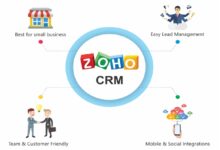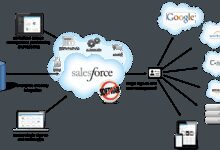CRM Implementation Services: 7 Powerful Steps to Success
Thinking about upgrading your customer game? CRM implementation services can transform how your business connects, converts, and retains clients—fast.
What Are CRM Implementation Services?

CRM implementation services refer to the professional support and strategic guidance provided to organizations during the planning, deployment, and optimization of Customer Relationship Management (CRM) systems. These services ensure that a CRM platform—like Salesforce, HubSpot, Microsoft Dynamics, or Zoho—is not just installed, but fully aligned with a company’s unique sales, marketing, and customer service workflows.
Unlike simple software installation, CRM implementation is a holistic process involving data migration, system configuration, user training, integration with existing tools, and ongoing support. It’s less about technology and more about transformation—reshaping how teams interact with customers and each other.
Core Components of CRM Implementation
A successful CRM rollout isn’t a one-step task. It’s a multi-layered effort that includes several key components:
- Needs Assessment: Identifying business goals, user requirements, and pain points to shape the CRM strategy.
- System Configuration: Customizing fields, workflows, dashboards, and automation rules to match business processes.
- Data Migration: Securely transferring existing customer data from legacy systems into the new CRM.
- Integration: Connecting the CRM with email platforms, marketing automation tools, ERP systems, and e-commerce platforms.
- User Training & Adoption: Equipping teams with the knowledge and confidence to use the CRM effectively.
- Post-Go-Live Support: Monitoring performance, troubleshooting issues, and making iterative improvements.
Each of these components requires specialized expertise, which is why businesses increasingly rely on professional CRM implementation services rather than attempting in-house rollouts.
Why Professional Services Beat DIY Approaches
While some companies attempt to implement CRM systems internally, the risks of poor adoption, data errors, and wasted investment are high. According to Gartner, over 70% of CRM projects fail due to lack of user adoption and misalignment with business processes.
Professional CRM implementation services mitigate these risks by bringing in seasoned consultants who have deployed dozens—or even hundreds—of systems across industries. They understand common pitfalls, best practices, and how to tailor solutions for maximum ROI.
“A CRM is only as powerful as the strategy behind it. Implementation services turn software into strategy.” — CRM Industry Expert
Top 7 Benefits of Using CRM Implementation Services
Investing in CRM implementation services isn’t just about getting the software up and running—it’s about unlocking its full potential. Here are seven powerful benefits that organizations gain when they partner with experts.
1. Faster Time to Value
One of the biggest advantages of using CRM implementation services is speed. Experienced consultants follow proven methodologies that accelerate deployment timelines. Instead of spending months figuring out configurations, businesses can go live in weeks.
For example, Salesforce partners often use pre-built templates and accelerators to cut implementation time by up to 50%. This means sales teams can start logging leads, tracking opportunities, and closing deals much sooner.
According to a Nucleus Research report, companies that use professional services achieve ROI from their CRM systems 3.2 times faster than those that don’t.
2. Higher User Adoption Rates
No matter how advanced a CRM system is, it’s useless if employees don’t use it. Poor adoption is the number one reason CRM projects fail. Implementation services tackle this head-on through change management strategies, role-based training, and user engagement programs.
Consultants conduct workshops, create intuitive dashboards, and provide hands-on coaching to ensure teams feel confident using the system. They also gather feedback during the rollout to make real-time adjustments, increasing buy-in across departments.
HubSpot-certified partners, for instance, often use a “train-the-trainer” model where internal champions are equipped to support their peers, creating a ripple effect of adoption.
3. Customization That Fits Your Business
Off-the-shelf CRM setups rarely fit perfectly. CRM implementation services provide deep customization to align the platform with your unique workflows.
Whether it’s building custom objects in Salesforce, designing automated lead scoring in HubSpot, or integrating with a proprietary inventory system, professional services ensure the CRM works the way your business does—not the other way around.
This level of personalization leads to smoother operations, fewer workarounds, and more accurate reporting. For example, a manufacturing company might need its CRM to track not just customer interactions but also equipment service history—something that requires expert configuration.
How CRM Implementation Services Drive Digital Transformation
CRM implementation isn’t just an IT project—it’s a catalyst for digital transformation. When done right, it reshapes how organizations collect, analyze, and act on customer data across every touchpoint.
Breaking Down Data Silos
One of the most common challenges in growing businesses is fragmented data. Sales uses one system, marketing another, and customer service a third. CRM implementation services integrate these systems into a single source of truth.
By connecting CRM with email, social media, phone systems, and support platforms, businesses gain a 360-degree view of the customer. This unified view enables personalized communication, faster response times, and better decision-making.
For example, a customer service agent can instantly see a client’s purchase history, recent marketing interactions, and open sales opportunities—all within the CRM interface—leading to more informed and empathetic service.
Enabling Automation and AI
Modern CRM platforms come with powerful automation and artificial intelligence features. CRM implementation services help organizations unlock these capabilities.
From automated email sequences and lead routing to AI-powered forecasting and sentiment analysis, consultants configure these tools to reduce manual work and improve accuracy.
Microsoft Dynamics 365, for instance, offers AI-driven insights that predict which leads are most likely to convert. But without proper setup and data hygiene, these predictions are unreliable. Implementation services ensure the AI models are trained on clean, relevant data for maximum effectiveness.
As noted by McKinsey, companies that leverage AI in sales see a 10–15% increase in revenue growth.
Scaling for Growth
Startups and mid-sized companies often choose CRM systems with scalability in mind. CRM implementation services design the architecture to support future growth—whether that’s adding new teams, entering new markets, or launching new products.
Consultants build modular systems that can be expanded without major overhauls. They also establish governance frameworks to manage user permissions, data quality, and system updates as the organization evolves.
This forward-thinking approach prevents technical debt and ensures the CRM remains a strategic asset for years to come.
Choosing the Right CRM Implementation Partner
Not all CRM implementation services are created equal. Selecting the right partner can make or break your project. Here’s how to find a provider that aligns with your goals and capabilities.
Look for Industry-Specific Expertise
A partner with experience in your industry brings invaluable insights. For example, a CRM consultant who has worked with healthcare providers will understand HIPAA compliance, patient journey mapping, and appointment scheduling workflows—critical factors that a generalist might overlook.
Ask potential vendors about their track record in your sector. Request case studies, client references, and examples of similar implementations they’ve completed.
Platforms like Salesforce maintain directories of partners with industry-specific badges, making it easier to identify qualified experts.
Evaluate Their Implementation Methodology
A structured methodology is a hallmark of a professional CRM implementation service. Look for partners who follow a clear, phased approach—such as Discovery, Design, Build, Test, Deploy, and Optimize.
This ensures accountability, transparency, and risk mitigation throughout the project. A well-documented plan with milestones, deliverables, and KPIs keeps everyone aligned and on schedule.
Agile methodologies are increasingly popular, allowing for iterative development and faster feedback loops. This is especially useful for complex implementations where requirements may evolve.
Check Certifications and Platform Partnerships
Certifications matter. A partner with official credentials from Salesforce, HubSpot, or Microsoft demonstrates technical proficiency and commitment to best practices.
For example, a Salesforce Platinum Partner has met rigorous performance, training, and customer satisfaction standards. These partners also have access to exclusive resources, early feature previews, and dedicated support from the platform vendor.
You can verify certifications through official partner portals like the Salesforce Partner Directory or the HubSpot Partner Program.
Common Challenges in CRM Implementation (And How Services Solve Them)
Even with the best intentions, CRM projects face obstacles. The good news? Professional CRM implementation services are designed to anticipate and overcome these challenges.
Data Migration Issues
Moving data from old systems to a new CRM is one of the most complex tasks. Incomplete records, duplicate entries, and inconsistent formatting can derail the process.
Implementation services use data cleansing tools and validation rules to ensure accuracy. They also perform test migrations and audits before going live, minimizing the risk of data loss or corruption.
For example, a retail chain migrating 10 years of customer transaction data might use automated scripts to standardize addresses, merge duplicates, and map fields correctly—saving hundreds of manual hours.
Resistance to Change
Employees often resist new systems out of fear, habit, or lack of understanding. CRM implementation services address this through change management strategies.
These include clear communication plans, leadership buy-in, pilot programs, and recognition for early adopters. Consultants also tailor training to different learning styles—offering videos, live sessions, and quick-reference guides.
As highlighted by Prosci’s ADKAR model, successful change requires Awareness, Desire, Knowledge, Ability, and Reinforcement—all of which professional services help deliver.
Integration Complexity
CRMs don’t operate in isolation. They need to connect with email, calendars, ERP systems, e-commerce platforms, and more. Without proper integration, data silos persist and workflows break.
Implementation services use APIs, middleware, and integration platforms like MuleSoft or Zapier to create seamless connections. They also test integrations rigorously to ensure data flows reliably in both directions.
For instance, syncing Salesforce with NetSuite ensures that sales orders automatically trigger accounting entries, reducing errors and improving financial reporting accuracy.
CRM Implementation Services for Different Business Sizes
The needs of a startup differ vastly from those of an enterprise. CRM implementation services are scalable and adaptable, offering tailored solutions for every stage of growth.
Startups and Small Businesses
For small teams, speed and simplicity are key. CRM implementation services for startups focus on quick setup, essential features, and low-cost entry points.
Platforms like HubSpot CRM or Zoho One offer free or low-cost tiers, and implementation partners help configure them for lead tracking, email automation, and basic reporting.
Consultants often use templated setups to reduce costs and time. They also prioritize mobile access and ease of use, knowing that small teams wear multiple hats and need fast access to customer data.
A typical small business implementation might take 2–4 weeks, with minimal disruption to daily operations.
Mid-Market Companies
Mid-sized organizations often have more complex processes, multiple departments, and higher data volumes. CRM implementation services for this segment focus on integration, automation, and role-based access.
For example, a 200-person company might need its CRM to support separate workflows for sales, marketing, customer success, and finance. Implementation consultants design custom pipelines, approval processes, and dashboards for each team.
They also ensure the system can scale to accommodate future growth, adding new users and modules as needed. The implementation timeline typically ranges from 6 to 12 weeks, depending on complexity.
Enterprise-Level Organizations
Large enterprises face the most complex CRM challenges: global teams, regulatory compliance, legacy systems, and thousands of users. CRM implementation services at this level are full-scale transformation projects.
They involve cross-functional teams, extensive data governance, multi-phase rollouts, and long-term support contracts. Consultants often work alongside internal IT, legal, and compliance departments to ensure alignment.
For example, a multinational bank implementing Salesforce might require GDPR-compliant data handling, multi-language support, and integration with core banking systems. The project could span 6–18 months and include regional pilots before global deployment.
Enterprise implementations also emphasize security, audit trails, and disaster recovery—critical for protecting sensitive customer information.
The Future of CRM Implementation Services
As technology evolves, so do CRM implementation services. The future is faster, smarter, and more user-centric than ever before.
Rise of Low-Code and No-Code Solutions
Modern CRM platforms are increasingly adopting low-code and no-code tools, allowing business users to customize workflows without developer help. Implementation services are adapting by focusing more on coaching and governance than on manual coding.
For example, Salesforce’s Flow Builder and Microsoft Power Automate enable non-technical users to create complex automations. Consultants now spend more time training “citizen developers” and setting up guardrails to prevent system clutter.
This shift empowers organizations to make changes faster while reducing dependency on IT.
AI-Powered Implementation Assistants
Artificial intelligence is beginning to play a role in the implementation process itself. Some platforms now offer AI-driven setup assistants that recommend configurations based on industry, company size, and goals.
For instance, HubSpot’s “Implementation Advisor” uses machine learning to suggest field mappings, automation rules, and dashboard layouts. While human consultants remain essential for strategy and change management, AI tools accelerate routine tasks and reduce errors.
As these tools mature, CRM implementation services will become even more efficient and accessible to smaller businesses.
Focus on Continuous Optimization
The future of CRM isn’t a one-time project—it’s an ongoing journey. Implementation services are shifting from “project-based” to “product-as-a-service” models, offering continuous support, quarterly reviews, and performance tuning.
This includes monitoring user adoption, analyzing data quality, and recommending new features or integrations. Some providers even offer subscription-based implementation services, bundling setup, training, and support into a single monthly fee.
This model aligns vendor success with customer success, creating a true partnership for long-term growth.
Real-World Examples of Successful CRM Implementation Services
Nothing speaks louder than results. Here are three real-world examples of how CRM implementation services transformed businesses across industries.
Example 1: E-Commerce Retailer Boosts Sales by 40%
A mid-sized online fashion retailer struggled with disconnected systems—orders in Shopify, emails in Mailchimp, and customer service in Zendesk. They hired a CRM implementation partner to deploy HubSpot CRM and integrate all platforms.
The consultant unified customer data, automated follow-up emails, and created personalized product recommendations. Within six months, the company saw a 40% increase in repeat purchases and a 25% reduction in response time to customer inquiries.
Example 2: Healthcare Provider Improves Patient Engagement
A regional healthcare network needed a way to manage patient appointments, follow-ups, and satisfaction surveys. They partnered with a Salesforce Health Cloud specialist to implement a secure, HIPAA-compliant CRM.
The implementation included automated appointment reminders, patient journey tracking, and integration with electronic health records (EHR). Patient no-show rates dropped by 30%, and satisfaction scores increased by 22%.
Example 3: Manufacturing Company Streamlines Field Service
A B2B equipment manufacturer faced delays in scheduling technician visits and tracking service history. They engaged a Microsoft Dynamics 365 partner to implement a field service management solution.
The CRM was configured to sync with inventory, dispatch technicians based on location and skill, and provide real-time updates to customers. Service completion time improved by 35%, and customer retention rose by 18%.
What is the average cost of CRM implementation services?
The cost varies widely based on platform, company size, and complexity. Small businesses might pay $5,000–$15,000, while enterprise projects can exceed $100,000. Many providers offer fixed-fee or hourly pricing models.
How long does CRM implementation take?
Simple implementations can take 2–4 weeks; mid-market projects 6–12 weeks; and enterprise rollouts 6–18 months. Factors include data volume, integration needs, and user count.
Can CRM implementation services help with user training?
Yes, user training is a core component. Consultants provide role-based training, documentation, and ongoing support to ensure high adoption and effective use.
Do I need CRM implementation services if I’m using a simple CRM?
Even simple CRMs benefit from professional setup. Services ensure proper configuration, data import, and training—maximizing value from day one.
What happens after the CRM is implemented?
Post-implementation support is crucial. Many services include optimization reviews, troubleshooting, and upgrade assistance to keep the system running smoothly.
CRM implementation services are more than just technical setup—they’re strategic enablers of growth, efficiency, and customer satisfaction. From small startups to global enterprises, businesses that invest in professional implementation see faster adoption, better data, and higher ROI. As CRM technology evolves with AI, automation, and low-code tools, the role of expert consultants becomes even more vital. By choosing the right partner and embracing a continuous improvement mindset, organizations can turn their CRM into a powerful engine for long-term success.
Further Reading:





